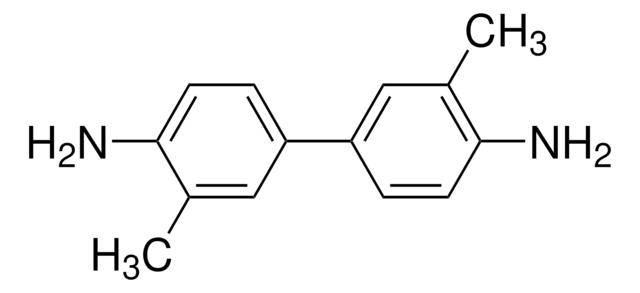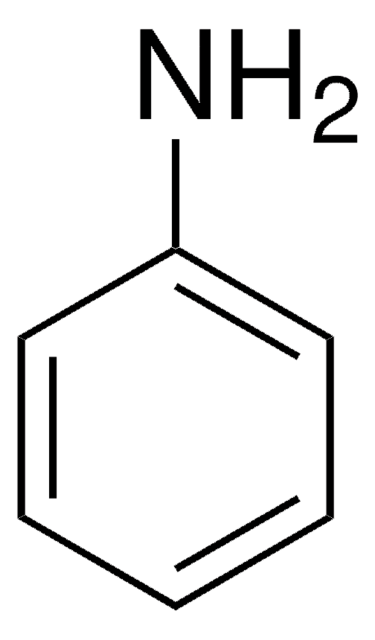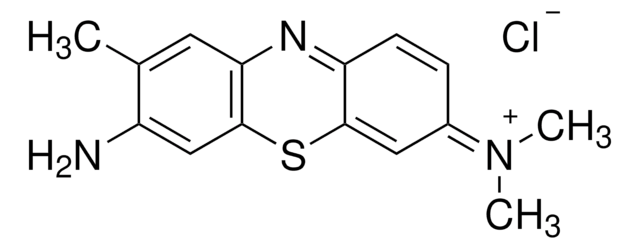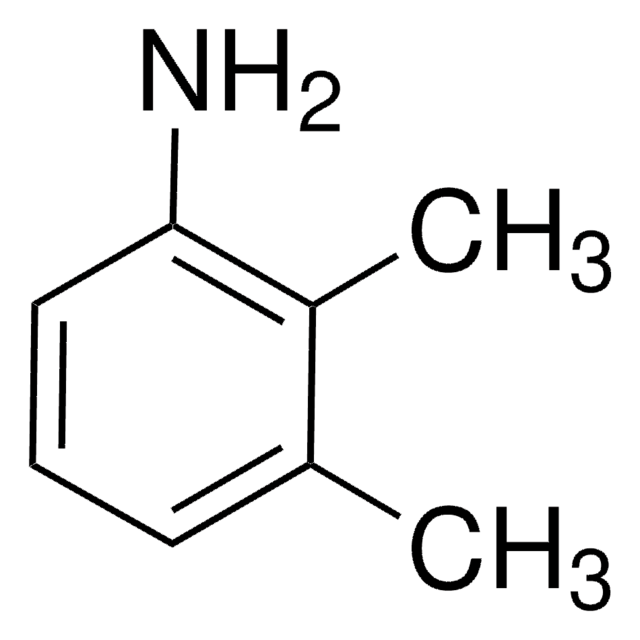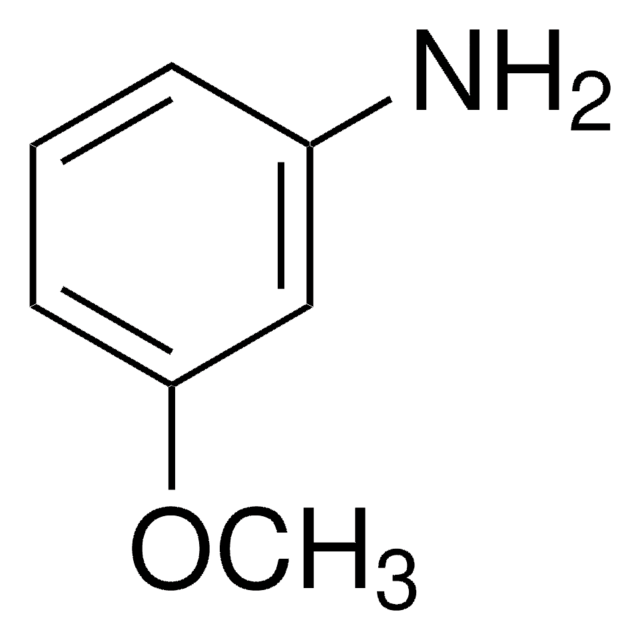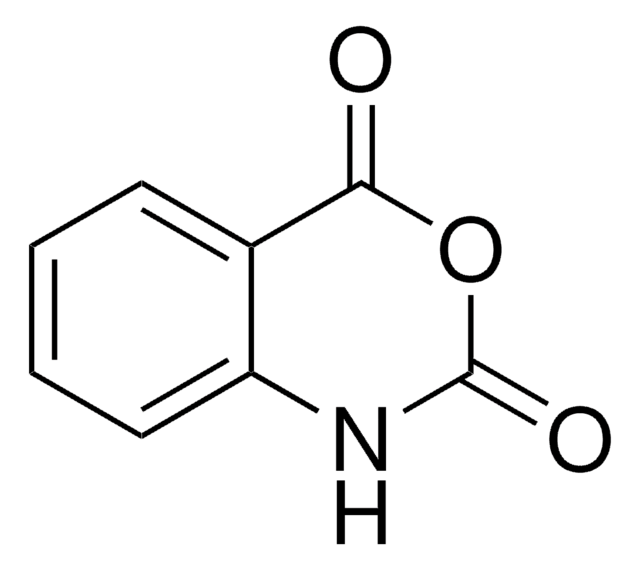89610
o-Toluidine
purum p.a., ≥99.5% (GC)
Synonym(s):
2-Aminotoluene, 2-Methylaniline
About This Item
Recommended Products
vapor density
3.7 (vs air)
Quality Level
vapor pressure
0.26 mmHg ( 25 °C)
grade
purum p.a.
Assay
≥99.5% (GC)
form
liquid
autoignition temp.
899 °F
impurities
≤0.1% water
≤0.5% m- and p-toluidine (GC)
ign. residue
≤0.01% (as SO4)
refractive index
n20/D 1.572 (lit.)
n20/D 1.572
bp
199-200 °C (lit.)
89-90 °C/11 mmHg (lit.)
mp
−28 °C (lit.)
solubility
H2O: slightly soluble
density
1.008 g/mL at 25 °C (lit.)
cation traces
Ca: ≤5 mg/kg
Cd: ≤1 mg/kg
Co: ≤1 mg/kg
Cr: ≤1 mg/kg
Cu: ≤1 mg/kg
Fe: ≤1 mg/kg
K: ≤20 mg/kg
Mg: ≤1 mg/kg
Mn: ≤1 mg/kg
Na: ≤20 mg/kg
Ni: ≤1 mg/kg
Pb: ≤1 mg/kg
Zn: ≤1 mg/kg
SMILES string
Cc1ccccc1N
InChI
1S/C7H9N/c1-6-4-2-3-5-7(6)8/h2-5H,8H2,1H3
InChI key
RNVCVTLRINQCPJ-UHFFFAOYSA-N
Looking for similar products? Visit Product Comparison Guide
General description
Application
Caution
Signal Word
Danger
Hazard Statements
Precautionary Statements
Hazard Classifications
Acute Tox. 3 Inhalation - Acute Tox. 3 Oral - Aquatic Acute 1 - Aquatic Chronic 2 - Carc. 1B - Eye Irrit. 2
Storage Class Code
6.1A - Combustible acute toxic Cat. 1 and 2 / very toxic hazardous materials
WGK
WGK 3
Flash Point(F)
185.0 °F - closed cup
Flash Point(C)
85 °C - closed cup
Personal Protective Equipment
Choose from one of the most recent versions:
Already Own This Product?
Find documentation for the products that you have recently purchased in the Document Library.
Customers Also Viewed
Protocols
GC Analysis of Anilines on Equity®-5
US EPA Method 8270 (Appendix IX): GC Analysis of Semivolatiles on Equity®-5 (30 m x 0.25 mm I.D., 0.50 μm)
Our team of scientists has experience in all areas of research including Life Science, Material Science, Chemical Synthesis, Chromatography, Analytical and many others.
Contact Technical Service

